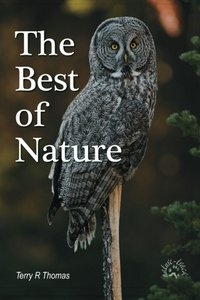Martha, the Last Passenger Pigeon
As we celebrate Labor Day this Monday, there is one other event that should warrant a least a little thought. September 1, 1914, 100 years ago, Martha, a passenger pigeon that had spent her entire 29 years in captivity, died. With her passing went the last of a species that was once the most abundant bird in America, and possibly the world.
Despite a reward offer of $1,000 for anyone who could find her a mate, Martha spent her last four years in solitude after her mate, George (the pair was named after George and Martha Washington) died.
Passenger pigeons were once so numerous that Seneca Indians called them Big Bread. Reminiscent of the quail of Exodus saving the Israelites, in 1781 passenger pigeons saved a large swath of New Hampshire from starvation after crops failed.
Stories of masses of birds taking three days to pass reached seemingly tall-tale proportions. But this eye witness account from 1855 in Columbus, Ohio perhaps captures the wonder/terror of a passing flight best: “As the watchers stared, the hum increased to a mighty throbbing. Now everyone was out of the houses and stores, looking apprehensively at the growing cloud, which was blotting out the rays of the sun. Children screamed and ran for home. Women gathered their long skirts and hurried for the shelter of stores. Horses bolted. A few people mumbled frightened words about the approach of the millennium, and several dropped on their knees and prayed.”
Had the demand for tasty pigeon and the need for timber remained on a local scale, passenger pigeons might still be with us today. But the railroad made it possible to ship lumber to growing cities. The Iron Horse also solved the problem of how to transport fresh pigeon carcasses to eastern markets where the appetite was insatiable. Pinched between habitat destruction and unregulated hunting, it took less than 50 years to make Martha a freak of sorts.
I don’t know if large numbers of humans and passenger pigeons ever could have co-existed. The passing birds left behind ravaged landscapes some later compared to WWI battlefields. It would have been intolerable competition. So the passenger pigeon’s fate may have been sealed when the first colonists touched down at Plymouth Rock.
The fact that we know the very date the species slipped into extinction is telling. Unlike the dinosaurs, our bloody fingerprints were all over it. We couldn’t escape responsibility.
Martha’s passing scribed with indelible ink the realization that nothing on this earth is unlimited, there is nothing humans cannot destroy. But the passenger pigeon also awoke within us the first stirrings of a conservation ethic, a realization that conservation is a community affair, not someone else’s problem. We realized that with our propensity for using things up, self-imposed limits are the only way we will co-exist with anything.
If that is the case, perhaps Martha’s death has more meaning than just the end of a species—it also marked the beginning of a new era.

"WOW. What a phenomenal piece you wrote. You are amazing." Jennifer Jackson
That is embarrassing, but actually a fairly typical response to my nature essays. Since The Best of Nature is created from the very best of 16 years of these nature essays published weekly in the Idaho Falls Post Register (online readership 70,000), it is a fine read. It covers a wide variety of topics including humorous glimpses of nature, philosophy, natural history, and conservation. Readers praise the style, breadth of subject matter and my ability to communicate complex and emotional topics in a relaxed and understandable manner.
Everyone can find something to love in this book. From teenagers to octogenarians, from the coffee shop to the school room, these nature essays are widely read and enjoyed.
Some of the essays here are my personal favorites, others seemed to strike a chord with readers. Most have an important message or lesson that will resonate with you. They are written with a goal to simultaneously entertain and educate about the wonderful workings of nature. Some will make you laugh out loud and others will bring a tear to the eye and warm your heart.
Readers Write:
"You hit a home run with your article on, Big Questions in Nature. It should be required reading for everyone who has lost touch with nature...great job!" Joe Chapman
"We enjoyed your column, Bloom Where Planted. Some of the best writing yet. The Post Register is fortunate to have your weekly columns." Lou Griffin.
To read more and to order a copy, click here or get the Kindle version
Copies are also available at:
Post Register
Island Park Builders Supply (upstairs)
Barnes and Noble in Idaho Falls
Harriman State Park, Island Park
Museum of Idaho
Valley Books, Jackson Wyoming
Avocet Corner Bookstore, Bear River National Wildlife Refuge, Brigham City, Utah
Craters of the Moon National Monument Bookstore, Arco, Idaho